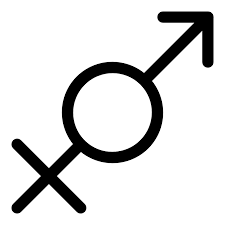Austria issues first intersex birth certificate after four-year battle
Austria issued its first intersex birth certificate on Thursday, after a four-year battle, as a growing number of countries offer identity documents with options other than male and female. Alex Juergen, who is intersex, a term for people who are born with atypical chromosomes or sex characteristics, is waiting to receive the new birth certificate - with the sex listed as "inter" - or intersex in German - in the post.

- Country:
- Austria
Austria issued its first intersex birth certificate on Thursday, after a four-year battle, as a growing number of countries offer identity documents with options other than male and female.
Alex Juergen, who is intersex, a term for people who are born with atypical chromosomes or sex characteristics, is waiting to receive the new birth certificate - with the sex listed as "inter" - or intersex in German - in the post. "I am very happy that the law and the government have finally recognized this," Juergen, 43, told the Thomson Reuters Foundation from Steyr, some 160km west of the capital Vienna.
"Many people don't accept that there can be something else," said Juergen, who does not identify as either male or female. A growing number of U.S. states, as well as countries including Germany, Pakistan, and Nepal, now allow people to choose a third sex option on official documents, with most opting for the letter "X". India has "T" for transgender.
Juergen's quest for a new birth certificate began in 2016, leading to a constitutional court ruling in 2018 that Austria's laws allowed for the inclusion of more than two sex options on identity documents. In 2019, Juergen was given a passport with "X" on instead of "M" or "F", and a birth certificate with "divers", roughly meaning "other", but continued to demand "inter" as a category for the latter.
Regulations issued by Austria's interior ministry after the 2018 court ruling state that a child whose sex cannot be determined should have "open" on their birth certificate until a decision can be made by them or their legal representative. The United Nations estimates 1.7% of people are intersex, although the condition is often not immediately obvious.
Some intersex babies undergo surgery to bring the appearance and function of their genitalia into line with that expected of males or females, which research suggests can lead to psychological damage later in life. Juergen said that the requirement that an intersex person needs a medical assessment of their sex characteristics to qualify for legal recognition as neither male nor female should be scrapped.
"A lot of people are traumatized and you cannot demand them to do that," Juergen said. Austria's interior ministry did not respond to a request for comment.
Tobias Humer, an activist with the Austrian Association of Intersex People, said intersex people should be allowed to choose what sex marker to put on their documents, without involving doctors. "The medical assessment ... leads to a pathologization of intersexuality," said Humer.
The Netherlands is considering removing gender from ID cards by 2025, as part of a plan to "limit unnecessary sex registration where possible", which advocates welcomed as making life easier for transgender, intersex, and non-binary people.
(This story has not been edited by Devdiscourse staff and is auto-generated from a syndicated feed.)
ALSO READ
Pakistan’s Telecom Expansion: Engro Corp and Veon Forge New Horizons
Pakistan Unfazed by South Africa's Dominant Home Record Ahead of Series
Former Pakistani Spy Chief Faiz Hamid Indicted for Political Misconduct
Strengthening Ties: Nepal's Army Chief Visits India
Pakistani Forces Counter Terrorists: A Deadly Encounter in Balochistan









